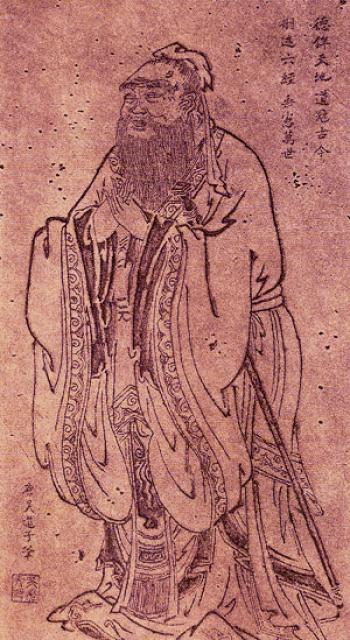Confucius Quotes
Source: The Wisdom Of Confucius
“To be poor without murmuring is difficult. To be rich without being proud is easy.”
Source: The Analects of Confucius
Source: The Doctrine of the Mean
§ 21, as translated by James Legge
Variant translations:
When I walk along with two others, from at least one I will be able to learn.
Walking among three people, I find my teacher among them. I choose that which is good in them and follow it, and that which is bad and change it.
The Analects, Chapter I, Chapter VII
Source: The Doctrine of the Mean
Source: The Analects, Chapter III
Book XVII, Chapter XXV.
Source: The Analects, Other chapters
Confucius extolled Jade's virtues this way. Cited in Awake! magazine 1987, 9/22.
Source: The Analects, Other chapters
Source: The Doctrine of the Mean
“There is no body but eats and drinks. But they are few who can distinguish flavors.”
Source: The Doctrine of the Mean
Source: The Doctrine of the Mean
As quoted in Walden (1854) by Henry David Thoreau, Ch. 1
Attributed
Source: The Analects, Other chapters
“Only after Winter comes do we know that the pine and the cypress are the last to fade.”
Source: The Analects, Other chapters
Variant: The Master said, "He who exercises government by means of his virtue may be compared to the north polar star, which keeps its place and all the stars turn towards it."
Source: The Analects, Other chapters
Retrospection of his own life. From this phrase, alternative names for each decades of human life are derived in Chinese.
Source: The Analects, Chapter II
“Choose a job you love, and you will never have to work a day in your life.”
Misattributed to Confucius since at least 1985; correct origins are dubious, as mentioned in "Choose a Job You Love, and You Will Never Have To Work a Day in Your Life" at QuoteInvestigator.com (2 September 2014) http://quoteinvestigator.com/2014/09/02/job-love/: the oldest English-language use of the proverb has been found in Woolfolk, Ann, "Toshiko Takaezu," Princeton Alumni Weekly, Vol. 83(5), 6 October 1982, p. 32: "Find something you love to do and you’ll never have to work a day in your life." (attributed to Arthur Szathmary, who attributes it, in his turn, to an unnamed source).
Misattributed, Not Chinese
“Among the appliances to transform the people, sound and appearances are but trivial influences.”
Source: The Doctrine of the Mean
“Well governed, poverty, ill governed, wealth a disgrace.”
The Ethics of Confucius https://books.google.ca/books?id=dYfFFik3e0YC&printsec=frontcover&source=gbs_ge_summary_r&cad=0#v=onepage&q&f=false, Cosimo Inc, 2005, p. 318 of Index under "People, the Nourishment of".
:Variation: To be wealthy in an unjust society is a disgrace.
Attributed
The Analects, Chapter I
Source: The Doctrine of the Mean
“To study and not think is a waste. To think and not study is dangerous.”
Variant: Learning without reflection is a waste, reflection without learning is dangerous.
Source: The Analects, Chapter II
The opening phrase of this chapter after which the chapter is named in Chinese.
Source: The Analects, Chapter IV
“Reviewing what you have learned and learning anew, you are fit to be a teacher.”
Source: The Analects, Chapter II
Variant: The man of virtue makes the difficulty to be overcome his first business, and success only a subsequent consideration: this may be called perfect virtue.
Source: The Analects, Other chapters
